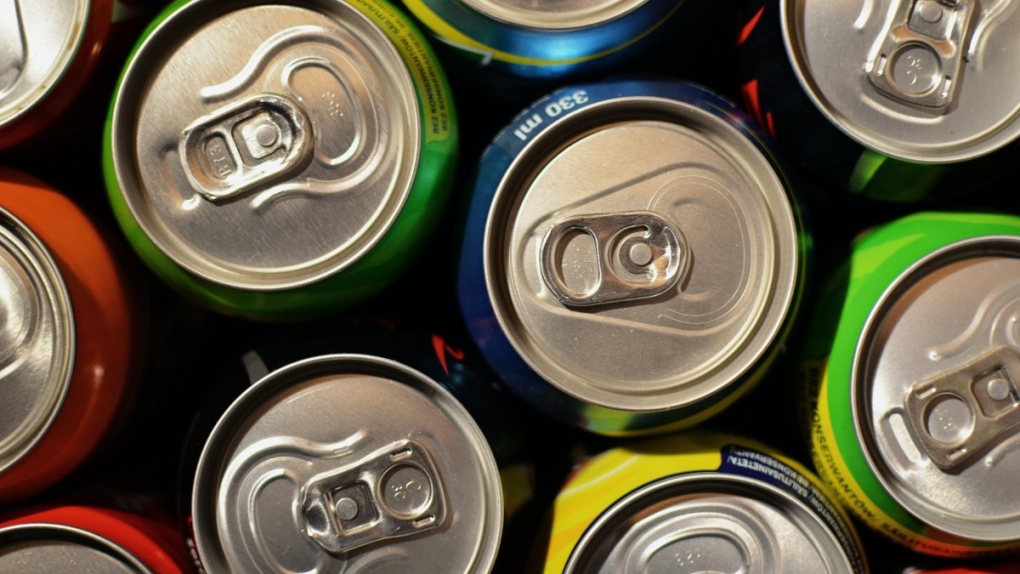Latest News
- More than 30,000 SUVs and pickup trucks recalled in Canada due to increased crash risk
- L.L.'s painful death: Ontario court enters critical phase with new digital evidence
- Woman entrepreneur scammed in Mount Pearl; police warn as holidays approach
- Summer McIntosh breaks record at U.S. Open; one step closer to world record
- Victim's family outraged; Ryden Bragden's killer will not go to prison
Latest Ads
-
Jasmine Jewel
Call
-
Omidan group
Call
-
Amir Madanpour
Call
-
Dimo studio
Call
-
Yorkacademy
Call
-
Maryambagheri
Call
-
Shishlix Restaurant
Call

Canadian health regulators ban this common food additive. Here's what you need to know
In a move to protect public health, Health Canada has announced that the use of brominated vegetable oil (BVO) as a food additive has been officially banned.
The decision comes after growing concerns about health risks associated with the additive, which was previously allowed in limited amounts.
The ban, which follows a similar ban by the US Food and Drug Administration (FDA) on August 2, has been in effect since the end of last month and could affect a wide range of food and beverage products on the market.
What is brominated vegetable oil?
Brominated vegetable oil is a chemical compound mainly used as an emulsifier in some beverages.
Emulsifiers help combine immiscible substances, such as water and oil, to mix together. In the case of BVO, this additive is effective in carbonated beverages, especially citrus-flavored beverages, and sports drinks to prevent flavor oils from separating and floating on the surface of the beverage.
BVO is a vegetable oil that has been combined with bromine, a chemical element that occurs naturally in the Earth's crust and seawater.
A proposal to ban BVO as a food additive was made in May by Health Canada, after a review of its safety profile. The decision was made official last month, when the ministry removed BVO from its list of permitted food additives.
Why is BVO banned?
The main concern with BVO is its potential health risks when consumed in large amounts. According to Health Canada, previous laboratory studies have shown adverse effects on certain organs such as the liver, heart or thyroid of animals given BVO orally. These effects have been observed at much higher doses than humans receive from BVO-containing beverages.
A 2022 study conducted by the FDA and the US National Institutes of Health reported similar results in mice fed BVO, this time at lower doses.
Referring to the study, Health Canada stated in its analysis that due to the inability to establish an acceptable daily intake (ADI) for BVO based on available data, and in light of previous laboratory studies showing health risks at high doses. and confirm below, BVO will be banned as a food additive.
This decision of the Canadian Ministry of Health is in line with the global trend of reducing or eliminating BVO. Several countries, including Australia, New Zealand and the United Kingdom, have also banned its use.
Which products will be affected?
BVO has historically been used in several popular beverages, particularly to stabilize citrus-flavored beverages. The products that will have the greatest impact will be soft drinks and energy drinks.
PepsiCo, maker of beverages such as Mountain Day, Gatorade and Nike Juice, told CTVNews.ca in a statement that it does not manufacture or distribute any of its products with BVO. The Gatorade brand website has also repeated this claim.
Coca-Cola, maker of Fanta, Fresca and Diet Coke, confirmed in an emailed statement that BVO was removed from their products several years ago.
what will happen
Health Canada has given manufacturers the opportunity to modify and label their products. This one-year transition period will last until August 30, 2025, and the necessary changes must be implemented during this period.
Until the end of the transition period, all requirements for the current authorized use of BVO as a food additive will continue to apply. Among these requirements is that BVO-containing beverages in Canada must list the food additives used in the ingredients list.
news source
Suggested Content
Latest Blog
Login first to rate.
Express your opinion
Login first to submit a comment.
No comments yet.


































